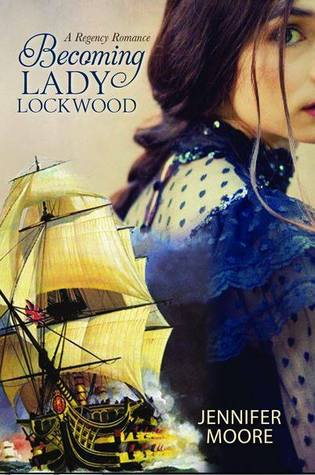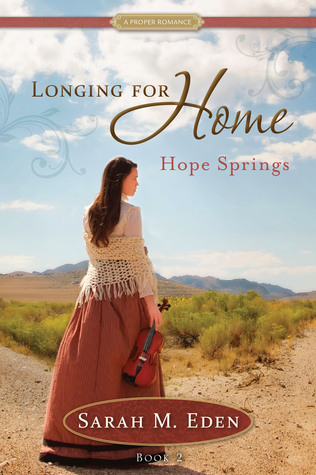When I first started reading books for the Whitney Awards about half a decade ago, I was enthusiastic about the general fiction books and the young adult books (that’s back in the old days when there was a single YA category). I had a healthy respect for speculative fiction, and a degree of scorn for the romances. Yeah, I was one of those people who thought she was too serious a reader to enjoy romance novels. However, over the last few years, my attitude has changed. Once I understood the form of the genre and was willing to go with it rather than buck its conventions, I started to enjoy the category more and more. In fact, “reading the romance” (also the title of a fascinating book by Janice Radway) has become one of the things I look forward to most with each Whitney cycle. This year was no different, and here’s why.
This year there are three “historical romances” among the finalists, and two contemporary romances. For the last three years, historical romances have taken the prize, and they seem to be enjoying a heyday at the moment. This might be because Mormon authors and Mormon readers generally want to read “clean” books, and historical romances, which often feature aristocratic or highborn characters, tend to follow old-fashioned courting rituals, and there’s no expectation that sex and swearing will be part of the book, even if the characters aren’t Mormon (by the way, only one of the five finalists features overtly Mormon characters this year).
 Two of the historical romances are by newcomer Jennifer Moore. Becoming Lady Lockwood begins in Jamaica, where Amelia learns that her her husband, whose marriage was arranged by her father and took place by proxy (in fact, she never met him), has died. She’s excited about her new status as a widow, which affords her the right to run her sugar plantation without outside interference, but then her husband’s angry brother, Captain William Drake, shows up and basically kidnaps Amelia to take her to England and challenge the validity of the marriage. My favorite thing about the book was feminist aspect– Amelia wanted freedom, not romance, and she was unhappy about relinquishing that freedom. Moore also does a nice job with the metamorphosis of William Drake in Amelia’s eyes.
Two of the historical romances are by newcomer Jennifer Moore. Becoming Lady Lockwood begins in Jamaica, where Amelia learns that her her husband, whose marriage was arranged by her father and took place by proxy (in fact, she never met him), has died. She’s excited about her new status as a widow, which affords her the right to run her sugar plantation without outside interference, but then her husband’s angry brother, Captain William Drake, shows up and basically kidnaps Amelia to take her to England and challenge the validity of the marriage. My favorite thing about the book was feminist aspect– Amelia wanted freedom, not romance, and she was unhappy about relinquishing that freedom. Moore also does a nice job with the metamorphosis of William Drake in Amelia’s eyes.
 Moore’s second novel, Lady Emma’s Campaign, is related to Becoming Lady Lockwood. In this novel, Sidney Fletcher, sidekick to Captain William Drake, is captured by the French, and Drake’s younger sister, Emma, who has been secretly pining for Fletcher, steals away on her brother’s ship and ends up being used as a pawn in the negotiations between the English and the French. Eventually, the pair venture across war-torn Spain, trying to keep ahead of the French. At times the book felt more like an action movie than a romance novel, but I liked Emma’s struggle with her expectations, both with the condition in which she would find Sidney, and in the realities of war.
Moore’s second novel, Lady Emma’s Campaign, is related to Becoming Lady Lockwood. In this novel, Sidney Fletcher, sidekick to Captain William Drake, is captured by the French, and Drake’s younger sister, Emma, who has been secretly pining for Fletcher, steals away on her brother’s ship and ends up being used as a pawn in the negotiations between the English and the French. Eventually, the pair venture across war-torn Spain, trying to keep ahead of the French. At times the book felt more like an action movie than a romance novel, but I liked Emma’s struggle with her expectations, both with the condition in which she would find Sidney, and in the realities of war.
 If I were a betting woman, I’d put my money on Sarah Eden’s Longing for Home: Hope Springs taking the Whitney this year. The novel is the second half of Longing for Home: A Proper Romance, which was a favorite among some of Segullah’s Whitney readers in 2013. In the first novel, we met Katie, newly arrived in Wyoming to work as a housekeeper in Hope Springs, a tiny town divided into the Irish and the Reds. By the end of the novel, Katie had helped heal some of the rifts, had fallen in love with two men, Tavish and Joseph, and had come to terms with some of the dark secrets of her past. The second book picks up exactly where the first left off (which, for me, is an annoyance– this would have been one really fantastic single novel, but it doesn’t work as well as two), the town endures more fighting and some terrible tragedies, and eventually Katie chooses her love. The writing is stronger in book two, and Eden’s characters are probably the richest of the five finalists.
If I were a betting woman, I’d put my money on Sarah Eden’s Longing for Home: Hope Springs taking the Whitney this year. The novel is the second half of Longing for Home: A Proper Romance, which was a favorite among some of Segullah’s Whitney readers in 2013. In the first novel, we met Katie, newly arrived in Wyoming to work as a housekeeper in Hope Springs, a tiny town divided into the Irish and the Reds. By the end of the novel, Katie had helped heal some of the rifts, had fallen in love with two men, Tavish and Joseph, and had come to terms with some of the dark secrets of her past. The second book picks up exactly where the first left off (which, for me, is an annoyance– this would have been one really fantastic single novel, but it doesn’t work as well as two), the town endures more fighting and some terrible tragedies, and eventually Katie chooses her love. The writing is stronger in book two, and Eden’s characters are probably the richest of the five finalists.

Four of Jordan McCollum’s books from the Spy Another Day series have been Whitney finalists over the last two years (the other three in the Mystery/Suspense category). The books all center on Talia Reynolds, a CIA agent who lives in Canada and tries to balance her cover as a lawyer, her “real” job and her attendance at the local singles’ ward. There’s no room in her life for love, at least until she meets Danny Fluker at church. The most refreshing part of Spy by Night is that we get the story from both Danny and Talia’s perspectives. This sets the narrative apart from many other romance novels because we often hear a female perspective, but rarely hear from men. McCollum further subverts the reader’s expectations by having Danny tell the gushy romantic part of the story while Talia sticks to the spying and the dithering over whether or not she can manage falling in love along with everything else in her life.
 My personal favorite of the finalists is Melanie Jacobson’s Painting Kisses. I’ve been a huge fan of Jacobson’s romances for a long time, and although she has had at least one book in the finalists for the last four years, she’s never won. I’d love to see Melanie not become the Susan Lucci of the Whitney Awards, and I really like Painting Kisses. Lia Carswell appears fairly happy with her life as a waitress at a diner in Salt Lake City, but she’s closed off to her customers, at least until Aidan starts eating there. As Aidan pursues Lia, secrets about their past come to light, and Lia has to confront her prejudices in order to get another chance at love. Jacobson is a master at dialogue and pacing, and I love the way she really has her finger on the pulse of pop culture. The book is a highly enjoyable fantasy for every girl who ever served a cute guy at a diner.
My personal favorite of the finalists is Melanie Jacobson’s Painting Kisses. I’ve been a huge fan of Jacobson’s romances for a long time, and although she has had at least one book in the finalists for the last four years, she’s never won. I’d love to see Melanie not become the Susan Lucci of the Whitney Awards, and I really like Painting Kisses. Lia Carswell appears fairly happy with her life as a waitress at a diner in Salt Lake City, but she’s closed off to her customers, at least until Aidan starts eating there. As Aidan pursues Lia, secrets about their past come to light, and Lia has to confront her prejudices in order to get another chance at love. Jacobson is a master at dialogue and pacing, and I love the way she really has her finger on the pulse of pop culture. The book is a highly enjoyable fantasy for every girl who ever served a cute guy at a diner.
If you, too, are a recovering romance snob, or you would like to be, check out this Pop Culture Happy Hour podcast with Linda Holmes and Sarah Wendell. I enjoyed it so much that now that I’m done reading the Whitney romances, I’m delving into Sarah Wendell’s book about what she’s learned from reading romance novels.
Continue reading at the original source →



